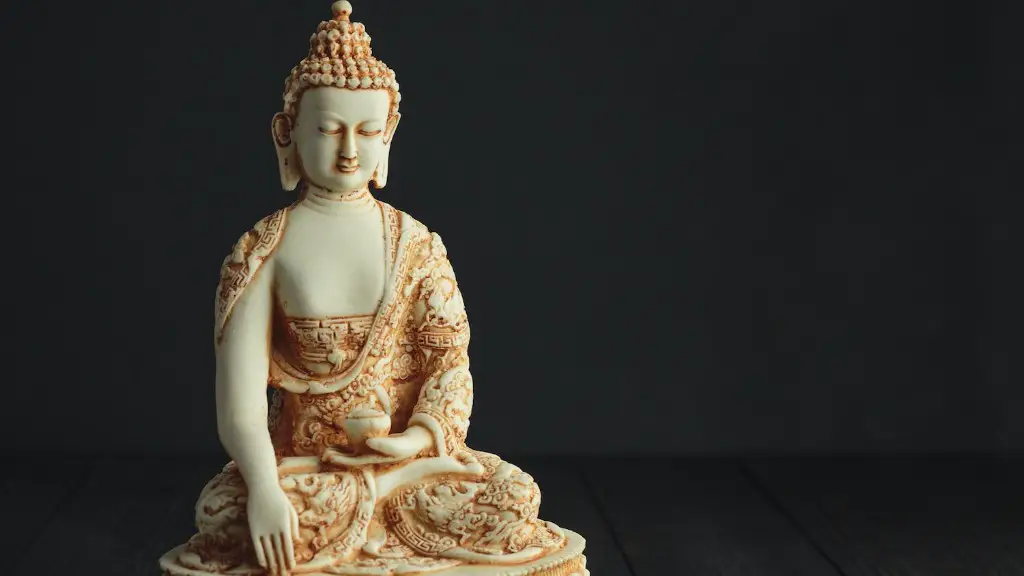The Vedas are a set of texts that form the core of the Hindu religion. They are an immense treasury of knowledge and spiritual guidance, and encompass everything from philosophy to science. The most important of the Vedas are the four Vedas, or samhitas. These were composed in the ancient Indian language of Sanskrit and were passed down by oral tradition. The Vedas are considered to be an eternal source of knowledge, and are still revered today in Hindu culture.
The core teachings in the Vedas focus on dharma, or righteousness. Dharma is defined as a set of principles and laws governing personal conduct and social relationships. Dharma is considered to be a fundamental aspect of human life, and is closely linked to ideas of fate and destiny. It is believed that those who follow their dharma faithfully will be rewarded in the afterlife.
The Vedas also contain instructions on how to perform rituals and ceremonies. These rituals and ceremonies serve to connect the individual with the divine and help to create an understanding of the interconnectedness between human beings and the universe. They are seen as a key part of a Hindu person’s daily life, as well as a way to express devotion and gratitude to the gods.
The Vedas are also a source of mythology. The stories and legends contained within the Vedas paint a vivid picture of the deities of Hinduism and the events of their lives. These stories and legends serve to provide a moral compass to those who follow the teachings of the Vedas.
In addition to providing a source of spiritual guidance, the Vedas also include a variety of other knowledge. This includes information on astronomy, medicine, law and politics, and literature. Many of the concepts and theories found in these texts are still relevant today and are still studied in Indian universities.
The Vedas are an immense source of knowledge, and they have been instrumental in the preservation of Hindu culture over the centuries. They are still visible in the daily lives of Hindus and form the foundation of their ancient faith.
Versions of the Vedas
The Vedas are composed of four texts, and each Veda is further divided into four main parts. The first part is the Samhita, which contains hymns and prayers. The second is the Brahmana, which is an attachment to the Samhita and contains instructions for performing rituals. The third is the Aranyaka, which is an appendix to the Brahmana and contains teachings about philosophy and theology. The fourth and final part is the Upanishads, which are revered as the foundation of the Hindu religion.
The versions of the Vedas have remained largely unchanged since their compilation over three thousand years ago. However, many of the hymns and prayers contained within them have been adapted and reinterpreted over the years. For example, the poetry in the Samhita is still chanted in rituals today, but the language and context in which they are chanted has changed significantly.
Despite these changes, the core teachings and messages of the Vedas remain unchanged. This is a testament to the immense respect and reverence that Hindus have for the ancient texts and the immense power of their wisdom.
Enrolling in a Veda Course
There are a number of ways that one can gain deeper insight into the Vedas. Enrolling in a Veda course is a great way to learn and understand more about this ancient faith. Courses are available both online and in many universities and colleges across India.
These courses typically involve studying the four Vedas as well as other texts such as the Upanishads. Students will learn about the philosophical and theological teachings and be able to comprehend the various hymns and prayers found within the Vedas.
The courses also provide an insight into the rituals and ceremonies of the Hindu faith, as well as the importance of dharma in daily life. For those interested in studying the Vedas at a more advanced level, there are also options to pursue a degree in Vedic Studies.
Widening Understanding of the Vedas
The Vedas remain an integral part of Hindu culture and are still studied and revered by millions today. There is a strong emphasis on understanding the Vedas, and there are a number of organizations dedicated to widening understanding of its teachings. These include local and international organizations such as the WorldVeda, which is an online hub for Vedic knowledge and resources.
In addition to these organizations, there are also a number of books, websites and seminars dedicated to exploring the Vedas in detail. These provide a great opportunity to learn more about the ancient texts and gain a greater understanding of the concepts, teachings and beliefs of Hinduism.
The power of the Vedas lies in the fact that their teachings have remained relevant and meaningful for thousands of years. They continue to provide spiritual guidance, impart wisdom and connect Hindus to the divine. It is for these reasons that the Vedas remain an integral part of the Hindu faith.
The Influence of the Vedas
The influence of the Vedas stretches far beyond the Hindu faith. Much of what we take for granted in modern life, such as mathematics and astronomy, were first spoken of in the Vedic texts. The Vedas have also had a profound influence on other religions and have been highly regarded by scholars from many different cultures.
The Vedas have been studied and analyzed for centuries by prominent figures, from Indian mystics to European scientists. Their teachings have been found to be universally applicable and timeless. To this day, the Vedas continue to form a fundamental part of Hindu culture, and to provide spiritual guidance to those who seek it.
Living the Teachings of the Vedas
Those who wish to live by the teachings of the Vedas must first gain an understanding of its core tenets. This includes understanding dharma, the value of rituals and ceremonies, and the importance of mythology. They must also be willing to put the teachings into practice, through study and by incorporating its teachings into their daily lives.
Living according to the Vedas entails leading a life of balance and harmony. This means striving for spiritual growth in one’s life, as well as cultivating a sense of appreciation for the beauty and divinity of the universe. Those who live by these principles will find lasting peace and satisfaction.
Conclusion on Vedas
The Vedas are one of the most important texts in Hinduism and, for many, represent the very core of their faith. Within the Vedas lies a vast body of knowledge, from philosophy and theology to mythology and science. The Vedas have shaped and defined Hindu culture for centuries, and are still studied and revered today. To truly understand and appreciate the Vedas, one must learn and live by their teachings.


